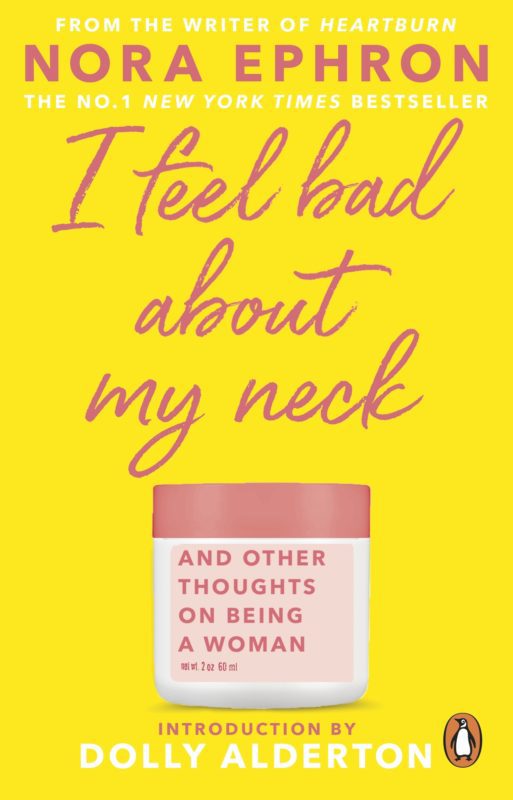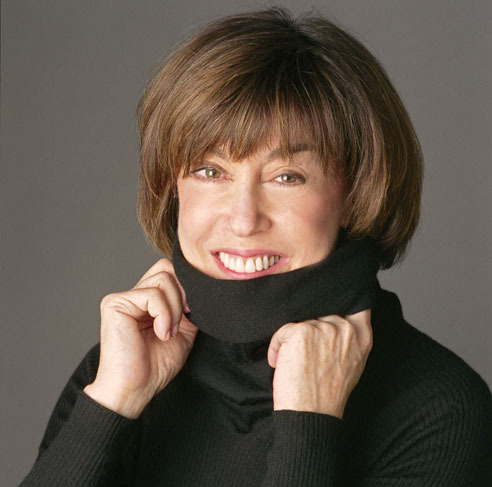 Last week I worked remotely at Sea Ranch, a breathtaking community on the ocean cliffs, north of San Francisco. The first thing I do when I enter a newly rented house is to check out the book shelves. Spotting a copy of Nora Ephron’s “I Feel Bad About my Neck: And Other Thoughts on Being a Woman,” I immediately curled into a comfy lounge chair and read the book on the spot. I was in the perfect mood for a lightweight, humorous read about aging and death. Plus, I adore Nora Ephron.
Last week I worked remotely at Sea Ranch, a breathtaking community on the ocean cliffs, north of San Francisco. The first thing I do when I enter a newly rented house is to check out the book shelves. Spotting a copy of Nora Ephron’s “I Feel Bad About my Neck: And Other Thoughts on Being a Woman,” I immediately curled into a comfy lounge chair and read the book on the spot. I was in the perfect mood for a lightweight, humorous read about aging and death. Plus, I adore Nora Ephron.
Back in 2006 when “I Feel Bad About My Neck ” first came out, my neck was not on my radar yet. But the title caught my attention. Maybe it was my “woman’s intuition” about what was to come. Now, 10 years later, my aging neck is unquestionably something I am aware of. Hence, the book was all the more appealing to me.
The first chapter, which bears the same title as the book, was a lackluster start. It had more of a stand-up comedy performance cadence than what I expected and anticipated. But as I read further, Nora altered her writing style and became the satisfyingly, smart and funny Nora I was longing for.
As I read the book, I experienced a number of full-up, burst-out loud laughs. But what I loved most was Nora’s painfully honest tips and stories about aging. She’s so honest that I felt the sisterhood that all women belong to at some point when we realize age has crept up on us, seemingly overnight.
The meat of “I Feel Bad About My Neck” is Nora Ephron’s life in Manhattan. And I could wax on here about how it paralleled mine just a decade earlier. I relished the same love of cooking, the latest cookbooks, fun dinner parties and the nuances of Manhattan life. But instead I will leap ahead to her last chapter, “Considering the Alternative.”
I found that, just as the first chapter of the book is different in tone, so is the last. Nora speaks with love of how she lost her best friend Judy to cancer in one incredibly short year. “She is my phantom limb, and I can’t believe I’m here without her,” she writes, adding that she “…meant to have a conversation with Judy about death. But of course, once they found the lump, there was no having the conversation.”
Then she adds “I have her white cashmere shawl. I wore it for days after her death. I wrapped myself up in it; I even slept in it. But now I can’t bear to wear it because it feels as if that’s all there is left of my Judy.” And with that admission, Nora unexpectedly grabs our hearts as she shares her loss. We meet the serious Nora who is struggling to be funny and wrangling with death that has suddenly become a part of her life.
Nora writes “I am dancing around the D word, but I don’t mean to be coy. When you cross into your sixties, your odds of dying — or of merely getting horribly sick on the way to dying — spikes.” She is glib, heartfelt and painfully honest all rolled into one. Naturally she explores the topic of death. She was our most-willing-to-talk-about-anything, beloved, female American comedian of the boomer generation.
Still, Nora tries her best to be humorous, to take the edge off of one of life’s most difficult topics. After all, death is final, and she has experienced the loss of more friends than she would like to discuss. Death is coming at her and she can’t stop it. But she also does her best to show us that you can try to look at death in a somewhat of a humorous light.
At some point in the book she also gets nostalgic and asks a lot of good questions. But she has few answers because, well, there are none, and because, “In a few minutes I will be through with writing this piece, and I will go back to life itself.”
I finished reading “I Feel Bad About My Neck” wishing it was longer, but completely aware that the next unwritten chapter was the last chapter in her life. Nora is now gone, and I’m sad because I’m right behind her and arriving at the age where I will lose family and friends too. I talk about dying more than she did, but it’s still a hard reality to face.
If Nora was great about one thing in life, it was facing reality head on and making fun of it. Thanks, Nora, for bravely facing death for us too. I loved you and will miss you terribly.

 “I Feel Bad About My Neck: And Other Thoughts on Being a Woman” by Nora Ephron
“I Feel Bad About My Neck: And Other Thoughts on Being a Woman” by Nora Ephron




 Funeral Favors Offer Visitors a Tangible Memento
Funeral Favors Offer Visitors a Tangible Memento
 “Comeback” by Prince
“Comeback” by Prince















